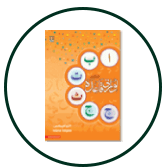Fasting is one of the most significant pillars of Islam, and it is the fourth pillar of Islam. Muslims all around the world observe this pillar with utmost dedication and devotion. Fasting is not just about refraining from food and drink; it is much more than that. It is a way to purify the soul and connect with Allah (SWT) spiritually. In this article, we will discuss Fasting: The Fourth Pillar of Islam in detail.
Introduction
Islam is a religion of five pillars, and each pillar is equally important. Fasting is the fourth pillar of Islam, and it is obligatory for every adult Muslim who is physically and mentally capable of fasting. Fasting in Islam means abstaining from food, drink, and other physical needs from dawn until dusk during the holy month of Ramadan. Fasting is a way to express devotion to Allah (SWT) and to gain self-control and discipline.
The Significance of Fasting: The Fourth Pillar of Islam
Fasting is an act of worship that has significant importance in Islam. It is not just about refraining from food and drink; it is also about refraining from negative thoughts, actions, and emotions. Fasting is a way to purify the soul and to gain self-control and discipline. It is a way to develop empathy and to understand the suffering of those who are less fortunate.
The Rules of Fasting
Fasting has specific rules that every Muslim must follow. The rules of fasting are straightforward, and they include:
- Abstaining from food and drink from dawn until dusk
- Refraining from smoking and sexual activity
- Avoiding negative thoughts, actions, and emotions
- Breaking the fast with dates and water
- Offering Taraweeh prayer
These rules are obligatory, and every Muslim must follow them during the month of Ramadan.
The Benefits of Fasting: The Fourth Pillar of Islam
Fasting has several benefits, both physical and spiritual. Some of the benefits of fasting are:
- Purification of the soul
- Development of self-control and discipline
- Increased empathy and understanding for the less fortunate
- Improved physical health
- Strengthening of the relationship with Allah (SWT)
Fasting is a way to improve physical and spiritual health, and it has been proven to have several health benefits.
How to Prepare for Fasting
Preparing for fasting is essential to ensure that the fast is observed with utmost dedication and devotion. Some of the ways to prepare for fasting are:
- Increase in acts of worship
- Reading the Quran
- Eating a healthy and balanced diet
- Drinking plenty of water
- Getting enough sleep
Preparing for fasting ensures that the fast is observed with ease and devotion.
The Etiquette of Fasting
Observing the etiquette of fasting is important to ensure that the fast is observed with sincerity and devotion. Some of the etiquette of fasting are:
- Avoiding negative thoughts, actions, and emotions
- Being kind and compassionate to others
- Offering prayers on time
- Reading the Quran
Observing the etiquette of fasting is important to ensure that the fast is observed with sincerity and devotion.
FAQs about Fasting: The Fourth Pillar of Islam
Q1. Can a person break the fast if he feels too weak or ill?
A1. Yes, a person can break the fast if he feels too weak or ill. The health of the individual is of utmost importance, and Islam recognizes that. If a person is unable to continue the fast due to illness or weakness, he can break the fast and make up for it later.
Q2. Are there any exemptions for fasting during Ramadan?
A2. Yes, there are exemptions for fasting during Ramadan. People who are sick, pregnant, breastfeeding, menstruating, or traveling are exempt from fasting. However, they are required to make up for the missed fasts at a later time.
Q3. What is the significance of breaking the fast with dates and water?
A3. Breaking the fast with dates and water is a tradition of Prophet Muhammad (PBUH). Dates provide the body with instant energy, and water hydrates the body after a day of fasting. It is also a way to follow the Sunnah of Prophet Muhammad (PBUH).
Q4. What is Taraweeh’s prayer?
A4. Taraweeh prayer is a voluntary prayer that is offered during Ramadan. It is offered after the Isha prayer and consists of 20 Rakats. It is a way to gain additional blessings and strengthen the relationship with Allah (SWT).
Q5. Can a person fast voluntarily outside of Ramadan?
A5. Yes, a person can fast voluntarily outside of Ramadan. Fasting on Mondays and Thursdays or on the 13th, 14th, and 15th of each Islamic month is considered Sunnah. Voluntary fasting is a way to gain additional blessings and strengthen the relationship with Allah (SWT).
Q6. What is the significance of Eid-ul-Fitr?
A6. Eid-ul-Fitr is the festival that marks the end of the holy month of Ramadan. It is a way to celebrate the completion of the fast and to express gratitude to Allah (SWT) for the blessings received during Ramadan. It is a day of celebration and joy, and Muslims all around the world celebrate it with their families and friends.
Conclusion
Fasting: The Fourth Pillar of Islam is a way to express devotion to Allah (SWT) and to gain self-control and discipline. Fasting is not just about refraining from food and drink; it is much more than that. It is a way to purify the soul and to connect with Allah (SWT) spiritually. Observing the rules and etiquette of fasting ensures that the fast is observed with sincerity and devotion. Fasting has several physical and spiritual benefits, and it is an act of worship that has significant importance in Islam.
In conclusion, Fasting: The Fourth Pillar of Islam is a way to improve physical and spiritual health, and it is an act of worship that is obligatory for every adult Muslim who is physically and mentally capable of fasting. It is a way to express devotion to Allah (SWT) and to gain self-control and discipline. May Allah (SWT) bless us all with the ability to observe fasting during Ramadan and to gain its benefits.







